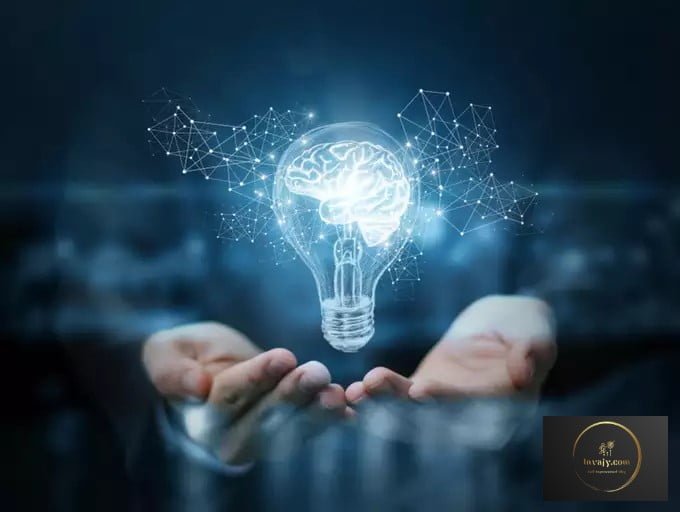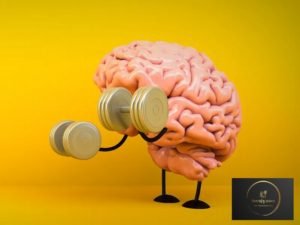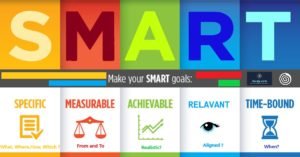How to Focus Mentally or Increase Concentration?
Unlock your productivity potential with our expert tips on mastering mental focus. From mindfulness to minimizing distractions, reclaim your concentration today!

In today’s competitive environment staying focused on the relevant cues is the critical factor for success. Mental focus or concentration is extremely critical for learning new things, achieving your goals, and performing well in different challenging situations. Lack of mental focus or concentration holds you back utilizing your full potential. Inability to concentrate on the task at hand is one of the biggest challenges of our time. Everyone wants to know how to focus better, how to concentrate.
What is mental focus or concentration?
Mental focus or concentration refers to the mental effort you direct towards the most relevant information in the environment. Your ability to focus towards something whatever you are working on or learning at the moment. It is basically one-pointedness capacity of mind.
During my life coaching sessions on meditation, few of my clients get confused between Concentration and mindfulness. Remember, concentration and mindfulness are different functions and they are not same. Both of them perform their own part in meditation and ideally these two works together as a team.
There is a subtle connection between concentration and mindfulness. Mindfulness picks the objects of attention, and notices when the attention has gone astray. While, Concentration does the actual job of holding the attention steady on that particular chosen object.

Well, here in this article we are discussing about the mental focus or concentration on broader level in every area of life, let’s do not dive deeply in difference between them and focus on “Mental Focus”.
Did you notice how we got distracted from “mental focus” to difference between Concentration and mindfulness? Through mindfulness we have brought back our mental focus back to “mental focus”.
Factors that affect Mental Focus
Many different personal and environmental factors affect a person’s concentration
- Enthusiasm for a given task or subject
- Skills, knowledge and quality of information
- Overall emotional and mental state
- Absence of adequate resources
- Potential distractions
- Uncomfortable environment
- Hormonal changes
- Lack of sleep
- Old Age
- Poor diet and nutrition
- Hunger
- Dehydration
- Lack of physical activity
How to focus mentally or concentrate?
Here are the tips and tricks on how to harness your attention to focus deeper, get distracted less, and even become more creative.
Eliminate Distractions
If you’re constantly interrupted, it becomes extremely difficult to concentrate on the task you are doing. Try to eliminate or minimize the number of distractions while you are working on something. In this digital world, we get easily distracted. Turning off your smart phone notifications, keeping the mobile phone on silent mode, checking emails on assigned time durations may help reduce distractions and increase your focus.
While working on something, chose a place which is less noisy, has comfortable surroundings and less interruptions by colleagues or family members. Make your work space as ergonomic and comfortable as possible, and try to keep your space neat and ventilated.
Train your Brain
Brain training activities can enhance your cognitive abilities, including concentration. Brain training games like jigsaw puzzles, sudoku, chess, and brain-stimulating video games develop your working and short-term memory, as well as your processing and problem-solving skills. You may also do activities like enhancing your vocabulary, learn a new language, or learn to play new music instrument. Such cognitive tasks and activities lead to various changes in the brain, including increased attention and mental focus.

Set SMART Goals
Sometimes it happens that your goals are too big to achieve and you lose interest during the journey to achieve them. If your lack of concentration is a result of feeling overwhelmed by a bigger goal or a complex project, try breaking it down into smaller goals or tasks and plugging these smaller milestones into the SMART formula.

Also Read : Goal Setting: Why it is important to set personal goals to achieve success?
SMART stands for:
- Specific – What exactly needs to be done? Well defined, clear, and unambiguous targets to achieve,
- Measurable – How will you track your progress? The goals should have specific criteria that measure your progress toward the accomplishment.
- Achievable – Is it realistic? Can it be done by the deadline? The milestones you set by you must be attainable and not impossible to achieve.
- Relevant – How does it fit with the overall plan or bigger goal? These smaller goals must relevant to your life purpose or task in hand.
- Timely – When does it need to be done? A clear defined timeline must be there, including a starting date and a end date.
Get Enough sleep
Sleep deprivation leads to lower alertness and mental focus. Poor sleep has an adverse impact on your ability to focus mentally. Adults should sleep between 7-8 hours each night. Getting enough hours (min. 7 to 8 hours) of high-quality sleep fosters attention and concentration. Develop good sleeping habits and get into the right sleeping rhythm.

Mindfulness Increases Mental Focus
Mindfulness is the practice of purposely focusing your attention on the present moment. As I shared earlier in this article, Mindfulness picks the objects of attention, and notices when the attention has gone astray. When you get distracted, it brings your attention back on the present moment, the current task or the ongoing situations. This way mindfulness is extremely helpful in increasing your concentration as it’s a part of the process itself.

Take Breaks to Improve Mental Focus
When you focus on something for a long time, your focus may begin to die down. Research shows that taking purposeful breaks (anywhere from 10 minutes to 60 minutes) to refresh your brain and body increases your energy, productivity, and ability to focus. During such breaks; you can move around, talk to someone, reconnect with nature, take a power nap, listen music, take a walk, meditate or do starching exercise. When you will come back after such short breaks; you will feel dramatically improvement in your mental focus.
Avoid Multitasking
There is a myth that multitasking improves productivity. Multitaskers are theoretically more productive; but in practical it reduces your efficiency and mental focus. Concentration means doing one thing at a time or thinking on one thought, and this is the opposite of multi-tasking, where you try to do several things at the same time. When you switch from one task to another; you basically switch your brain’s focus from one task to another. This is the opposite to concentration, so avoid multitasking.
Keep Practicing
Building your mental focus is not something, which will happen overnight. You need to have patience and work on the above tips and strategies for some time. If you have noticed even professional athletes require plenty of time and practice in order to strengthen their mental focus or concentration skills.
Over to you now, that is all from my side in this article . I hope you enjoyed this post on how to focus mentally. Please share your experiences and views on improving concentration in the comment section below. I and the other readers will love to learn from your experiences.
If you have enjoyed this article on mental focus , please share this with your friends and family members on your favorite social media platforms i.e. Facebook, Twitter, Pinterest and Instagram.







Nice Post.Thanks for Sharing